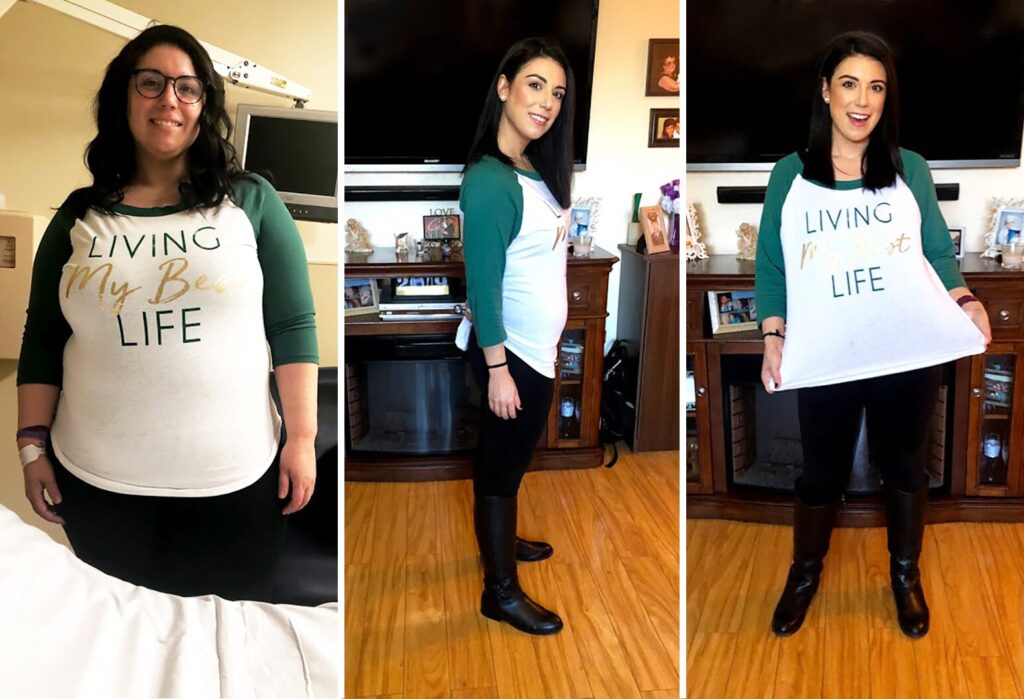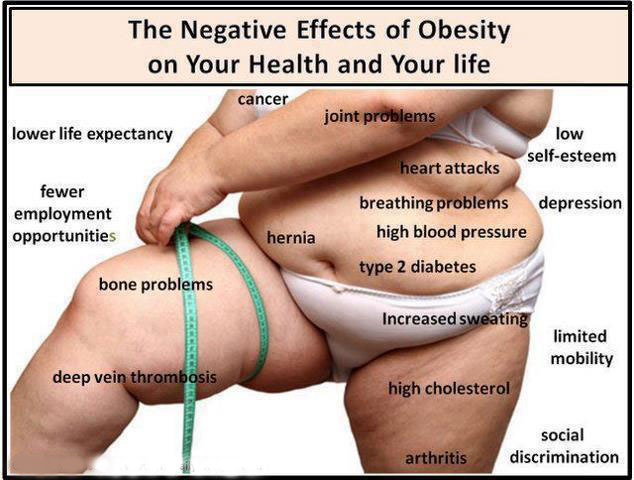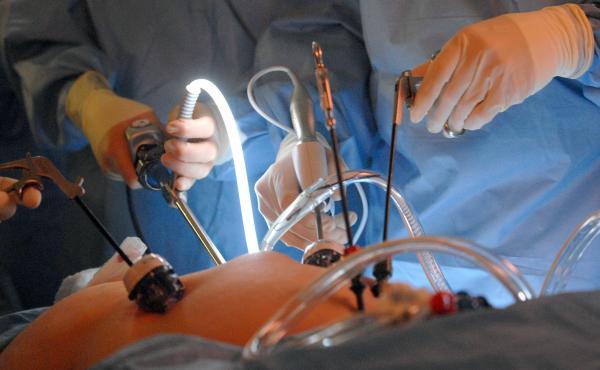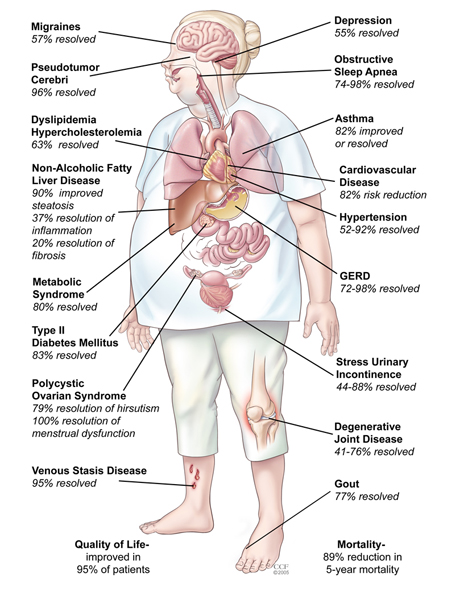Bariatric Treatment
Bariatric Treatment in Pune
What is Obesity?
Obesity is not a simple condition of eating too much. It is now recognised that obesity is a serious, chronic disease. Obesity was widely perceived as a symbol of wealth and fertility at other times in history, and still is in some parts of the world. In 2013, the American Medical Association classified obesity as a disease which leads to many comorbidities like diabetes, high BP (hypertension), cholesterol, infertility, PCOS (PCOD), arthritis, sleep apnea etc. Obesity is a leading preventable cause of death worldwide, with a change in lifestyle there is increasing prevalence in adults and children, and authorities view it as one of the most serious public health problems of the 21st century.
Causes of Obesity
Here’s a very simple explanation of how you put on weight and will lose weight with surgery. Your body needs the energy to function and your energy source is the food that you eat. A normal weight person successfully balances their energy intake (food eaten) with their energy requirements (daily activity). In other words, they burn up all the energy provided by the food they eat and stay slim. At an individual level, change in lifestyle i.e. combination of excessive food energy intake and a lack of physical activity is thought to explain most cases of obesity. A limited number of cases are due primarily to genetics, medical reasons, or psychiatric illness. In contrast, increasing rates of obesity at a societal level are felt to be due to an easily accessible and palatable diet, increased reliance on cars, and mechanised manufacturing.
Consequences of Obesity or Why Treat Obesity
The costs linked with treating obesity and its related health conditions are enormous. Putting the costs aside, the main concern regarding obesity is the impact it has on health. Almost all body systems are affected by obesity. Being overweight can also shorten your life. On average obese people are likely to die 10 years earlier than those who are not overweight, preventing many from reaching retirement age. The heavier you are and the longer you have been overweight the greater the risk
If you are obese, severely obese, or morbidly obese, you may have Major health risks.
• – Shorter Life Expectancy
• – Diabetes (type 2)
• – High Blood Pressure
• – High Cholesterol
• – Joint problems (e.g., arthritis)
• – Obstructive Sleep Apnoea
• – Heart disease
• – Gallbladder problems
• – Certain types of cancer (breast, uterine, colon)
• – Digestive disorders (e.g., gastroesophageal reflux disease, or GORD)
• – Breathing difficulties (e.g., sleep apnea, asthma)
• – Psychological problems such as depression
• – Problems with fertility and pregnancy (Polycystic Overy Disease PCOD)
• – Incontinence
Obesity treatment in Pune
What is obesity or bariatric surgery?
Bariatric surgery, also known as weight loss surgery, refers to the operations designed to reduce weight (bariatric come from the Greek meaning pressure or weight). Operations may restrict the amount you are able to eat (restrictive operations such as the gastric band sleeve gastrectomy) or both restrict the amount you can eat and reduce the amount you can absorb (gastric bypass, mini gastric bypass or duodenal switch). The term does not include procedures for surgical removal of body fat such as liposuction or abdominoplasty (tummy tuck).
Why do Bariatric Surgery?
There can therefore be many benefits to health with weight loss, particularly after obesity surgery. Scientific research demonstrated that obesity surgery can reduce health problems considerably, as shown in the table below:
One study, conducted in Sweden, demonstrated quite clearly the differences in health between a group of obese patients who underwent surgery and those that did not.
Types of Bariatric surgery
We at Obesity Care offer a wide range of surgical procedures such as gastric banding, Roux-en-Y bypass (gastric bypass), sleeve gastrectomy and Gastric Balloon. All operations are performed laparoscopically (keyhole surgery), which will help you to get up and around and back to normal as soon as possible after surgery. One of the mainstays of our service is the multidisciplinary team. Each team member has his or her own role and all together we ensure you are fully informed about weight loss surgery and that your operation is performed in the safest possible environment. Your safety is our first priority.
How does surgery work?
Obesity surgery works by helping to reduce the number of calories that are available in your body. There are two ways this can be achieved surgically:
• Restriction – by reducing the size of the stomach, only small meals can be eaten and the appetite is satisfied
• Malabsorption – by bypassing part of the small intestine, less calories from food are absorbed by the body
Post-Operative care
Most people recover very quickly after weight loss surgery and can join there work as soon as they feel confident.
Wounds – The laparoscopy wounds will be stitched with self dissolvable sutures and covered with waterproof dressings after the operation. The dressings should be left for 12 days from the day of the operation (only change if the wound is oozing or the dressing has lifted off and is no longer waterproof). By that time, the wounds are usually healed enough to remain uncovered and the stitches used are dissolvable. If you notice any sign of wound infection (pain, redness, swelling or pus) you are advised to contact us on 9765555451 or 8446441266.
Exercise – Gentle outdoor exercise is important as well as getting plenty of sleep and keeping your fluids up. You should gradually try to increase your exercise until you are walking for 30 minutes per day. You should aim to walk at a speed that makes you slightly short of breath and sweaty.
Driving – You may drive as soon as you can comfortably wear a seat belt and are able to perform an emergency stop ( 14 days after surgery). Avoid heavy lifting for at least 3 months after surgery.
Pregnancy – Losing weight can increase fertility but we strongly recommend that you do not become pregnant for 2 years following surgery as weight loss may have effects on the unborn child. If you do not already have regular contraception it may be worth visiting your gynecologist for advice.
Emotion – It is common for patients to feel tearful, irritable and vulnerable in the first few weeks after surgery. This is a normal response as surgery is a life changing event. This is usually temporary and improves once you start eating more solid food and get back to your normal routine. Please contact a member of the team if you need reassurance or are finding it difficult to cope
Partying – We advise you not to drink any alcohol for 6 months after surgery and may be more prone to the intoxicating effects of alcohol than you used to be. Also bear in mind that alcohol contains calories without any nutrients and can be high in sugar. You may resume sexual activity as soon as you feel comfortable.
Follow up
We look after our patients closely after surgery and are always available for any problems or questions you may have. The first check up after your operation is generally at six to eight weeks. After that the follow up regime will vary and you will be given further details at the time of your operation. You will require regular blood tests for the rest of your life after bariatric surgery.
Eating after bariatric surgery-
Weight loss surgery is not a ‘quick fix’ or a certainty that you will lose weight. It is a tool to help your weight loss. Successful weight loss will be entirely down to you making good dietary choices and being as physically active as possible.
It is important to realise that we don’t always eat because we are hungry. We might eat out of habit or because we have learned to turn to food as a comfort when we are bored, or upset, or even happy. This “head hunger” does not disappear with surgery and you must learn to overcome this if you want to be successful with your weight loss.
After bariatric surgery , to ensure successful results, eating habits need to change

- Have three small meals a day. Choose quality over quantity – go for healthy, great tasting, textured food in smaller but delicious servings.
- Avoid snacking between meals unless you are genuinely hungry. Try to choose a piece of fruit or other healthy option.
- Eat slowly: put a small amount of food in your mouth at a time and chew this very well. Eating at a table without any distractions (no TV) and putting down cutlery between mouthfuls can help.
- Do not aim to eat until you are ‘full’. After surgery, overeating will stretch your stomach pouch, causing discomfort and may make you vomit.
- Do not drink with meals. Wait at least 30 minutes after a meal before you have a drink. Make sure you have at least 2 litres of fluid a day.
- Avoid all fizzy drinks.
- Choose textured foods that satisfy your stomach. Drinking high calorie liquids or eating foods that ‘melt’ (crisps, chocolates, cakes, biscuits, ice-cream) will mean that you won’t lose weight. These foods slip straight through, don’t make you full and result in a very high calorie intake. Your dietician will provide information on appropriate ‘textured’ foods.
- Get out and be active! Swap computer and TV time with active time to improve fitness and energy levels and get the most out of your weight loss.
Certain foods can be a problem for some people. These can include chewy meats, soft white bread, rice, fibrous fruit and vegetables, nuts and seeds. These should be avoided at the beginning and re-introduced slowly once a ‘normal’ diet has been established. Everyone is different as to what they can manage and you will need to find out what is right for you by trial and error.
You will be given lots of help and information about the pre and post-operative diets by our dietician.
- What is Laparoscopic Gastric Banding?
- Sleeve Gastrectomy
- Roux-en-Y Gastric Bypass (LRYGB)
- Mini-Gastric Bypass
- Gastric/Stomach Ballon
- An inflatable silicone band that is placed around the top part of the stomach to create a pouch
- Inserted using keyhole (laparoscopic) surgery, this only leaves a few small scars.
- The laparoscopic gastric band restricts the amount of food that can be eaten.
- Attached to the gastric band is a port which is placed just under the skin. The port can be accessed with a needle to inflate or deflate the gastric band after surgery.
- You can expect to lose roughly 50-60 percent of your excess weight.
- The amount of food that can be consumed at a meal is restricted.
- The band can potentially be removed in the future. The aim however, is to leave in place for life as removal will result in weight regain.
- You can expect to lose roughly 50-60 percent of your excess weight.
- The amount of food that can be consumed at a meal is restricted.
- Food passes through the digestive tract in the usual order, allowing it to be absorbed fully by the body.
- There is no re-routing of small intestines
- Weight loss starts from the time of surgery and can be rapid within the first 6 months.
- You can expect to lose roughly 70 – 80 percent of your excess weight at 2 years.
- In most cases, further surgery is not required.
- Patients report decreased hunger and appetite due to hormonal changes.
- Has the highest and fastest remission rate for diabetes (type 2)
- Restrictive – A Small stomach pouch is created restricting the amount of food you can eat.
- Malabsorptive – A portion of the small intestine is bypassed. Since the small intestine is responsible for absorbing the calories from the food you eat, bypassing a portion of the small intestine results in fewer calories being absorbed, thus creating additional weight loss.
- Hormonal – The hormone ghrelin has been nicknamed the “Hunger Hormone” by researchers because of its significant effect on appetite. Gastric Bypass results in a fall in ghrelin levels resulting in a reduced appetite.
F.A.Q
- There is no straightforward answer to this question! It is likely that you will have your own ideas as to what is the right operation for you. Based on your personal circumstances and medical conditions such as diabetes, hypertension, our experienced team will be able to provide you with information to help you decide the best possible treatment plan. It will be a joint decision between you and the surgeon.
- There are a number of widely accepted criteria which make a patient suitable for Bariatric or weight-loss Surgery: – Weight greater than 45 kgs above ideal body weight for sex and height – BMI > 38.5 (Asians) by itself or > 33.5 if there is associated illness such as diabetes, high BP or sleep apnea – Obesity related health problems – No psychiatric or drug dependency problems – Capacity to understand the risks associated with surgery There is considerable flexibility in these guidelines. Sometimes a lower BMI between 30-35 is accepted if comorbidities exist.
Most people recover very quickly after weight loss surgery and can join there work as soon as they feel confident.
Wounds – The laparoscopy wounds will be stitched with self dissolvable sutures and covered with waterproof dressings after the operation. The dressings should be left for 12 days from the day of the operation (only change if the wound is oozing or the dressing has lifted off and is no longer waterproof). By that time, the wounds are usually healed enough to remain uncovered and the stitches used are dissolvable. If you notice any sign of wound infection (pain, redness, swelling or pus) you are advised to contact us on 9765555451 or 8446441266.
Exercise – Gentle outdoor exercise is important as well as getting plenty of sleep and keeping your fluids up. You should gradually try to increase your exercise until you are walking for 30 minutes per day. You should aim to walk at a speed that makes you slightly short of breath and sweaty.
Driving – You may drive as soon as you can comfortably wear a seat belt and are able to perform an emergency stop ( 14 days after surgery). Avoid heavy lifting for at least 3 months after surgery.
Pregnancy – Losing weight can increase fertility but we strongly recommend that you do not become pregnant for 2 years following surgery as weight loss may have effects on the unborn child. If you do not already have regular contraception it may be worth visiting your gynecologist for advice.
Emotion – It is common for patients to feel tearful, irritable and vulnerable in the first few weeks after surgery. This is a normal response as surgery is a life changing event. This is usually temporary and improves once you start eating more solid food and get back to your normal routine. Please contact a member of the team if you need reassurance or are finding it difficult to cope
Partying – We advise you not to drink any alcohol for 6 months after surgery and may be more prone to the intoxicating effects of alcohol than you used to be. Also bear in mind that alcohol contains calories without any nutrients and can be high in sugar. You may resume sexual activity as soon as you feel comfortable.
Follow up
We look after our patients closely after surgery and are always available for any problems or questions you may have. The first check up after your operation is generally at six to eight weeks. After that the follow up regime will vary and you will be given further details at the time of your operation. You will require regular blood tests for the rest of your life after bariatric surgery.
- Weight loss surgery is not a ‘quick fix’ or a certainty that you will lose weight. It is a tool to help your weight loss. Successful weight loss will be entirely down to you making good dietary choices and being as physically active as possible.
It is important to realise that we don’t always eat because we are hungry. We might eat out of habit or because we have learned to turn to food as a comfort when we are bored, or upset, or even happy. This “head hunger” does not disappear with surgery and you must learn to overcome this if you want to be successful with your weight loss.
After bariatric surgery , to ensure successful results, eating habits need to change -
- Have three small meals a day. Choose quality over quantity – go for healthy, great tasting, textured food in smaller but delicious servings.
- Avoid snacking between meals unless you are genuinely hungry. Try to choose a piece of fruit or other healthy option.
- Eat slowly: put a small amount of food in your mouth at a time and chew this very well. Eating at a table without any distractions (no TV) and putting down cutlery between mouthfuls can help.
- Do not aim to eat until you are ‘full’. After surgery, overeating will stretch your stomach pouch, causing discomfort and may make you vomit.
- Do not drink with meals. Wait at least 30 minutes after a meal before you have a drink. Make sure you have at least 2 litres of fluid a day.
- Avoid all fizzy drinks.
- Choose textured foods that satisfy your stomach. Drinking high calorie liquids or eating foods that ‘melt’ (crisps, chocolates, cakes, biscuits, ice-cream) will mean that you won’t lose weight. These foods slip straight through, don’t make you full and result in a very high calorie intake. Your dietician will provide information on appropriate ‘textured’ foods.
- Get out and be active! Swap computer and TV time with active time to improve fitness and energy levels and get the most out of your weight loss.
Cost depends on lots of factors such as
• Bed category
• Type of surgery
• Open or laparoscopic repair
• Choice of hospital
• Preexisting medical conditions such as diabetes, angina which may prolong your hospital stay or need critical monitoring. Following your first meeting with the doctor, we would be able to give you an approximate estimate.Easy Finance: In association with Bajaj Finserve, we have made available easy finance options whereby you can pay the entire cost of surgery is eight monthly installments.
We like to see you 10 days after the operation to check on your progress and wounds.





